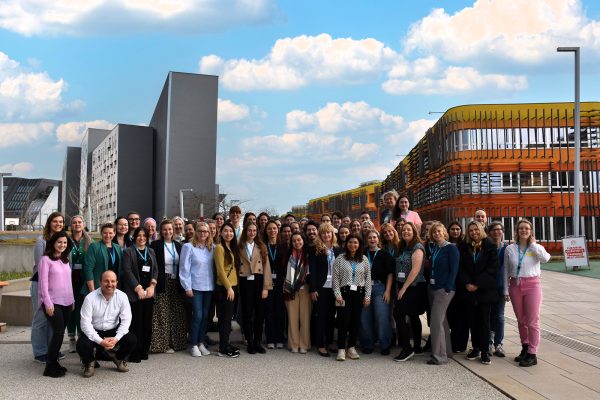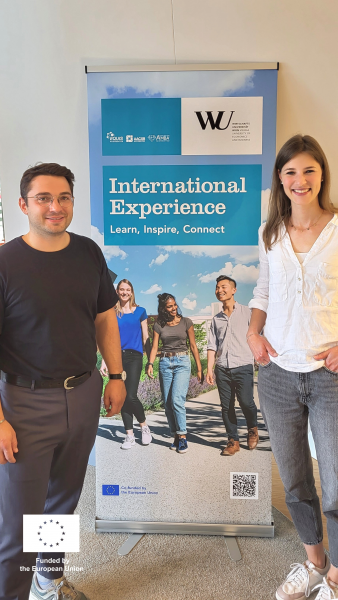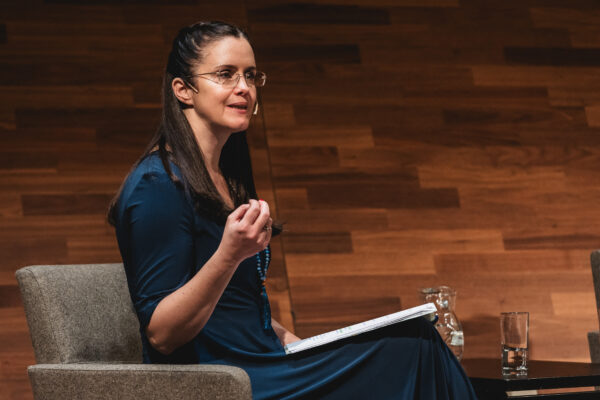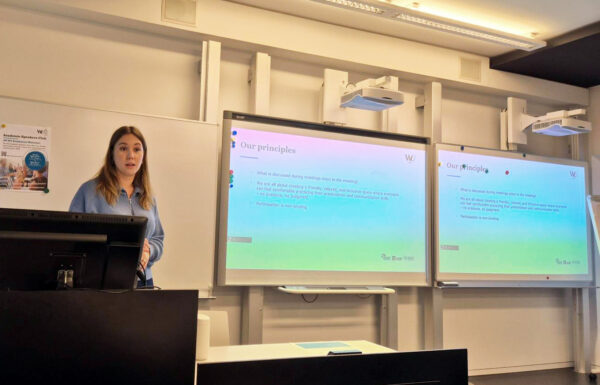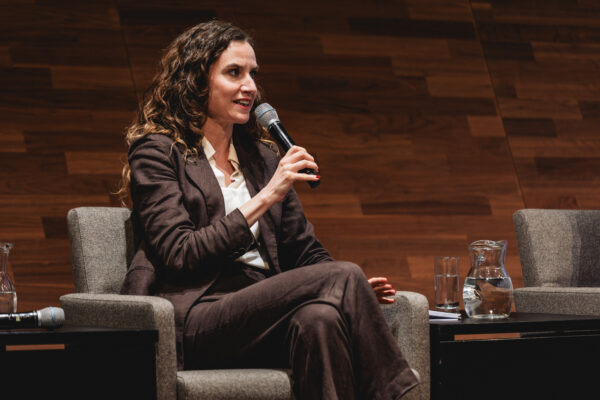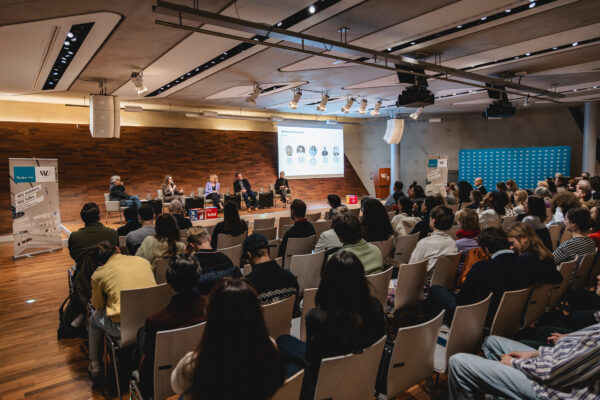Artificial Banking – Will loan decisions soon be made by AI?
Our second “WU matters. WU talks.” event of the current semester was held on Campus WU on October 22. The WU Ceremonial Hall was filled to the last spot when our experts discussed the hot topic of AI, focusing specifically on the role of artificial intelligence in bank lending. Experts Kurt Hornik, professor of statistics and computing at WU, and Karin Turner-Hrdlicka from the European Central Bank (ECB) delivered the opening keynote speeches. After that, Stefan Pichler, professor of banking and finance at WU, led an insightful discussion featuring Gerda Holzinger-Burgstaller, Erste Bank Austria, and Michael Höllerer, Raiffeisenlandesbank Niederösterreich-Wien.
Banks have access to far more sensitive and personal data than many people would suspect at first glance. It’s clear that data like people’s names, account balances, and mailing addresses allow for conclusions to be drawn about the account holder’s creditworthiness or lack thereof – but there’s more: Bank transfer details and similar data can also give clues about someone’s religious affiliation, marital status, any expensive hobbies they may have, and even some of their personal vices. It would be easy to feed this data to AI systems and let the algorithm assess whether someone is creditworthy or not. When it comes to granting loans, banks worldwide have a vested interest in using as much of this data as possible and run AI-based analyses to minimize their lending risks.
Do we need more AI in banking?
For WU researcher Kurt Hornik, the answer to this question is a resounding yes. “But this ‘yes’ applies mainly in the context of the research I’ve been doing for over 35 years now,” Hornik said. Professor Hornik, a specialist in financial mathematics, presented models and formulas to explain how multilayer perceptrons (MLPs) work. MLPs are the basic building blocks of neural networks, and they play a key role in the development of all kinds of artificial intelligence applications. From a research perspective, AI opens up a completely new playing field with many potential areas of application and new avenues of research. Hornik highlighted the profound impact of these developments on research and teaching. “Compared to what we used to teach, we’re now seeing a radical shift in the professional profile of our graduates and a transition towards a completely different skill set,” Hornik pointed out.
However, answering the question of whether we need more AI in banking becomes less straightforward when all aspects of people’s financial lives are taken into consideration. Stefan Pichler’s opening question set the tone for the following discussion: “When we’re discussing AI applications in banking, we’re not just talking about risk assessment but also about fairness for everyone: Does AI mean that going forward I’ll no longer get a loan if I live in the ‘wrong’ neighborhood?”
Regulation vs. technological progress
The panelists acknowledged the concerns that most people have about the use of AI in banking. As Karin Turner-Hrdlicka pointed out, “As part of a development that was accelerated by the pandemic, AI has come to play an important role in the financial sector. AI has the potential to increase efficiency and productivity, benefiting banks and bank customers alike. However, these developments also bring new challenges and risks. In particular, the use of generative AI requires regulation at the national and international levels,” she explained.
At the European level, the regulations governing the use of AI (which includes large language models as well as other forms of generative AI) are set out in the AI Act, which will become fully applicable next summer. Turner-Hrdlicka pointed out that the AI Act (which applies in addition to other extensive regulations on the subject matter) pursues somewhat contradictory goals. “On the one hand, the EU wants to become a leader in generative AI. But on the other hand, it also wants to ensure that AI is transparent, human-centered, and secure,” Turner-Hrdlicka said
Acting, not reacting
Gerda Holzinger-Burgstaller pointed to a change in perspective: “Banks used to have a reactive business model – customers came to us when they needed something, and, as bankers, it was our job to find the best product or service for their needs. AI has changed that – our customers now expect us to approach them proactively with tailor-made packages,” Holzinger Burgstaller said. Michael Höllerer took a similar angle in his contributions, with the caveat that, in Austria, the changes are not as fast-paced as elsewhere, as he pointed out. “In traditional lending, conventional statistical models are still the dominant model here. We’re only taking our very first steps when it comes to using of AI in the lending process,” Höllerer said.
The representatives of the banking sector expressed mixed feelings about the requirements imposed by the AI Act and other regulations, such as the General Data Protection Regulation (GDPR). They recognized the uncertainty that the use of AI is causing among bank customers and bank employees, but they also called for less extensive regulation. Holzinger-Burgstaller argued, “What we need is a push for simplification, including the banking sector. Let’s not overcomplicate matters ahead of time when we’re developing regulations for the future. We need a better balance between customer benefits on the one hand versus banking secrecy and data protection on the other. Michael Höllerer concurred, “It’s time to rethink the political decision-making processes, also considering the short half-life of technology-based solutions.”
The final question of whether AI will soon make all the loan decisions for our banks remained unanswered. It remains to be seen how the further development of AI systems unfolds going forward, and also whether and to what extent the political regulations that apply to European banks will be remodeled. One thing is certain, however: The banking sector will continue to change as a result of AI implementation. Only time will tell whether and to what extent this will have a positive effect on people’s individual credit ratings.
Watch the full discussion here:
Want to join the conversation on current topics?
WU matters. WU talks. is our series of panel discussions and public lectures where researchers and experts from leading businesses and institutions share valuable insights and discuss current topics with the interested public. Sign up here for our newsletter so you don’t miss our next expert discussions on the hot topics of our time!














